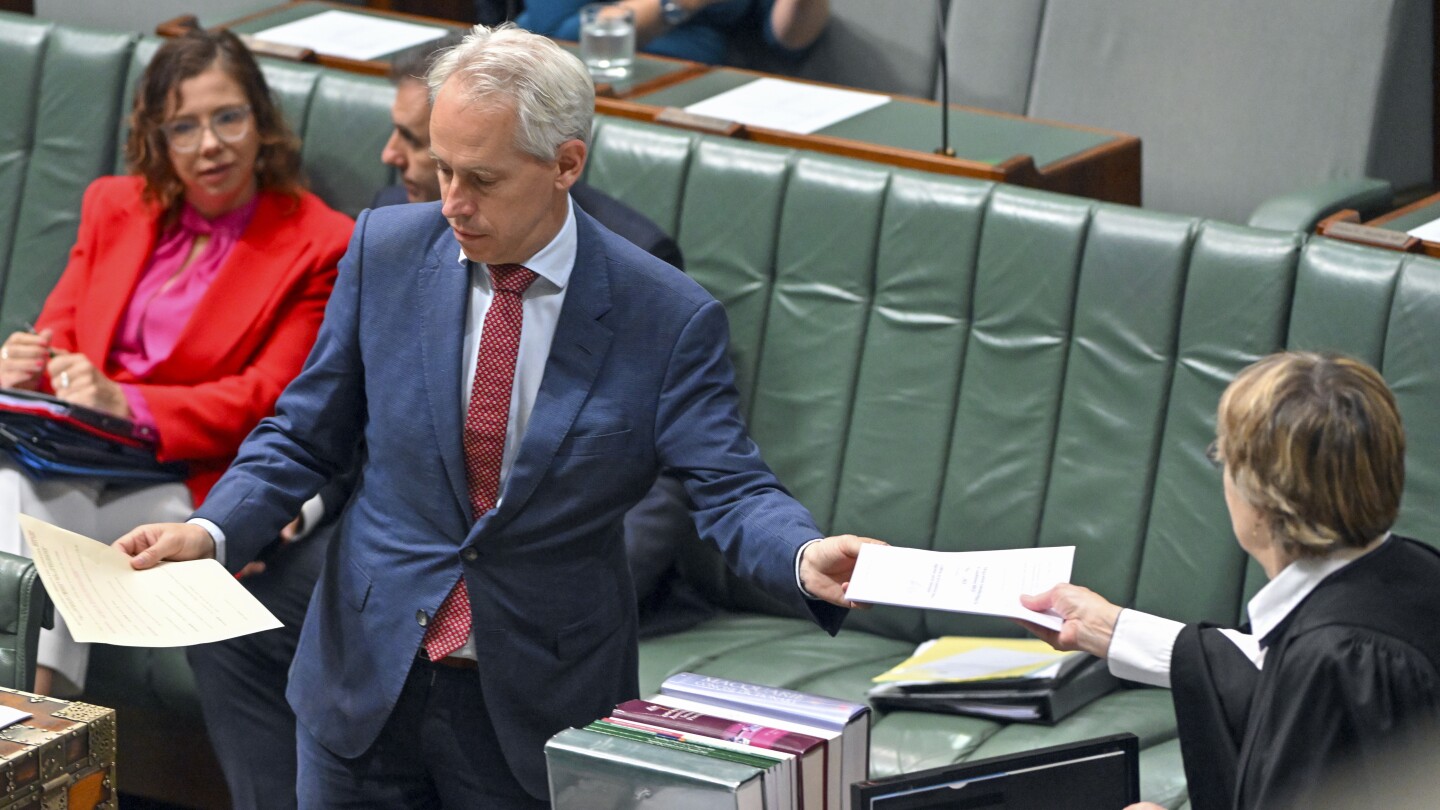CANBERRA, Australia (AP) — High-risk migrants in Australia will face up to five years in prison for breaching their visa conditions under emergency legislation introduced Thursday in response to a High Court ruling that migrants can’t be detained indefinitely.
The government said it has released 83 foreigners — most of whom have convictions for crimes including murder and rape — since the court ruled last week that indefinite detention of migrants is unconstitutional.
The decision reversed a High Court ruling from 2004 that had allowed stateless people to be held in migrant centers for any length of time in cases where there were no prospects of deporting them from Australia.
The legislation introduced in Parliament by Immigration Minister Andrew Giles would let the government order certain migrants to wear electronic tracking bracelets and to comply with curfews. Failure to comply with those visa conditions could be a criminal offense punishable by up to five years in prison.
The released migrants include “certain individuals with serious criminal histories,” Giles told Parliament.
“These measures are consistent with the legitimate objective of community safety, and the rights and interests of the public, especially vulnerable members of the public,” Giles said.
Human rights lawyers argued that the measures could be challenged in court as punitive and excessive.
“Any new conditions must meet some basic tests. They must be necessary, they must be reasonable, proportionate, they must not be punitive or deprive people unnecessarily of their liberty,” David Manne, a lawyer who represents several of the released migrants, told Australian Broadcasting Corp.
“We shouldn’t readily be handing to the government extraordinary powers to impose severe restrictions on our lives without proper scrutiny. It’s hard to see how there has been proper scrutiny given how urgently this has all been introduced,” Manne added.
The legislation was pushed through the House of Representatives on Thursday morning and will now be considered by the Senate.
Opposition leader Peter Dutton, whose conservative party could ensure that the center-left government’s measures are passed by the Senate, described the proposals as inadequate to ensure community safety.
Giles said further legislation would be considered once the High Court’s seven judges publish the reasoning for their decision.
All the released migrants previously had their visas canceled or had been refused visas because of their criminal records or other evidence of poor character. They were ordered into indefinite detention because they had no reasonable prospects of being deported to a country that would accept them.
They include Afghans, a nationality that Australia has stopped deporting since the Taliban seized power in their homeland. They also include Iranians, because Iran will only repatriate Iranians who return voluntarily.
The test case was brought by a member of Myanmar’s persecuted Rohingya Muslim minority, identified in court as NZYQ, who was convicted of raping a 10-year-old boy in Sydney and sentenced to five years in prison. He was put in indefinite detention after prison.

